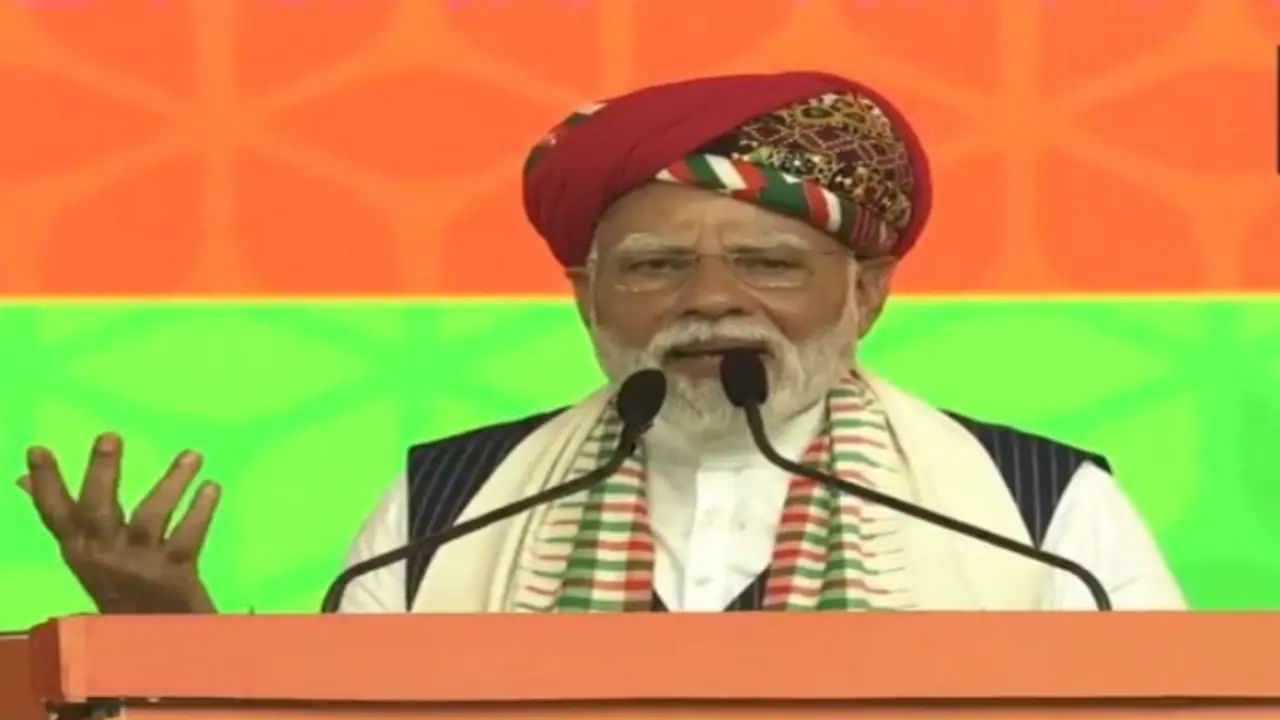PM Modi said he gave Pakistan 15 days to act after the Pahalgam attack, but saw no action. Calling terror Pakistan’s “bread and butter,” he defended Operation Sindoor as a justified and necessary response.
Prime Minister Narendra Modi on Monday said he had hoped Pakistan would act against terrorism following the April 22 Pahalgam attack, which killed 26 people, but was left disappointed. “I waited for 15 days,” PM Modi said at a rally in Dahod, Gujarat. “I was hopeful Pakistan would take action against those behind the attack. But for them, terrorism has become bread and butter.”

The Prime Minister issued a stern warning to Pakistan, urging its people to reject terrorism and choose peace. “Live a life of peace, eat your bread in calm… or my bullet is ready,” he said at a rally. He appealed directly to Pakistan’s citizens and youth, asking them to take charge and free their country from the grip of terrorism.
PM Modi said India’s response through Operation Sindoor was not just a military mission but a moral one. “Operation Sindoor is a mission to protect humanity and put an end to terrorism. Our policy is zero tolerance to terror. Anyone who tries to spill Indian blood will be answered in their own language,” he declared.
He also said that India’s armed response showed the country’s courage and unity. “After what happened in Pahalgam, could India sit silently? Could Modi sit silently?” he asked. “India is no longer a soft state. We act with full force, in line with our values.”
PM Modi added that the world now views India as a country that stands up against terror. Operation Sindoor, launched on May 7, targeted terror camps across the border in Pakistan and Pakistan-occupied Jammu & Kashmir. The strikes reportedly killed over 100 terrorists linked to outfits like Jaish-e-Mohammed, Lashkar-e-Taiba and Hizbul Mujahideen.
The Prime Minister’s remarks come in the backdrop of Operation Sindoor, India’s cross-border military action targeting terror infrastructure in Pakistan and Pakistan-occupied Jammu & Kashmir (PoJK). The operation, launched on May 7, was a retaliation to the Pahalgam attack, which was blamed on Pakistan-based terror groups like Jaish-e-Mohammed and Lashkar-e-Taiba.
Operation Sindoor: What happened
According to the government, Indian Armed Forces targeted terror launch pads and safe houses across the Line of Control, eliminating over 100 terrorists. The strikes were aimed at high-value targets and were carefully planned using intelligence inputs.
The government said the attacks had a psychological and operational impact on Pakistan’s security forces, as they failed to protect key terror hubs within their territory.
No warning to Pakistan before strikes
There were allegations by the Congress party that the government had warned Pakistan in advance about the strikes. However, External Affairs Minister S. Jaishankar recently clarified during a parliamentary panel meeting that there was “absolutely no conversation” between India and Pakistan prior to the operation. He said Pakistan was informed only after the strikes, and that too via Director General of Military Operations (DGMO) communication.
Global support for India
The Modi government has also received widespread support from the international community for its anti-terror operations. Apart from three countries, China, Turkey and Azerbaijan, most nations have backed India’s right to self-defence. German Foreign Minister Johann Wadephul had recently stated that India had “every right” to act against terrorism and welcomed the ceasefire between both sides.
Diplomatic efforts on terror
The Indian government has launched a global outreach campaign following Operation Sindoor. Multi-party parliamentary delegations have been sent to various capitals to highlight Pakistan’s terror links and India’s zero-tolerance policy against terrorism.
Meanwhile, discussions continue over the status of the Indus Waters Treaty, which India has currently kept “in abeyance”. The government told MPs that they will be briefed on future steps regarding the treaty.
PM Modi’s statement signals both a justification for military action and a continued tough stance against terrorism originating from across the border.


